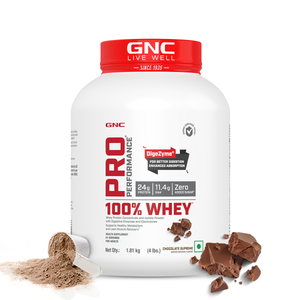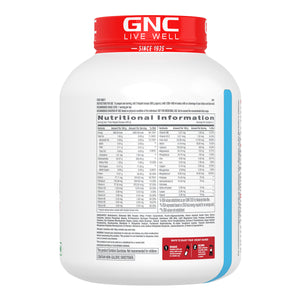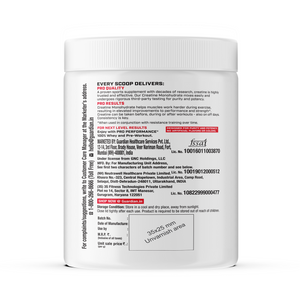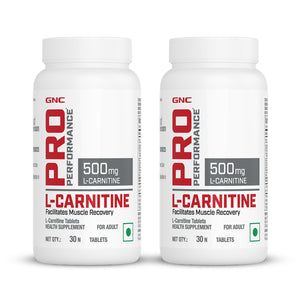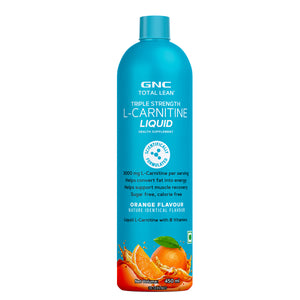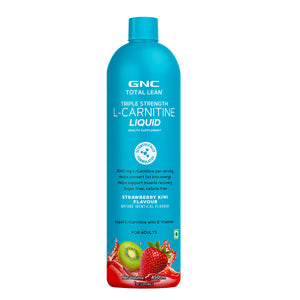Is coffee good for weight loss?
If you are a coffee lover but have to compromise your delicious cappuccino because of your fitness journey, then this blog might come as a savior. The one recurring question related to coffee and weight loss is – does coffee help lose weight?
Is coffee good for weight loss?
Coffee contains caffeine, the world's most widely consumed psychoactive substance. It's worth noting that caffeine is a common component in many contemporary fat-burning supplements, and for valid reasons. Additionally, it stands out as one of the rare substances recognized for its ability to facilitate the release of fats from adipose tissues, contributing to an elevated metabolism.
Is coffee good for weight loss? Here are some benefits that you should know of -
-
Metabolic Boost
Does coffee help lose weight? Yes, it does by boosting your metabolism. The caffeine in coffee is a natural stimulant that can temporarily boost metabolism. A higher metabolic rate means your body burns more calories, potentially contributing to weight loss. -
Acts as Appetite Suppressant
Caffeine may act as an appetite suppressant for some individuals, leading to a reduced desire to eat. This can result in lower overall calorie intake, which is a key factor in weight loss. So, the next time someone asks you does coffee help lose weight, you can explain them how it acts like an appetite suppressant and use this property for yourself as well. -
Increases Physical Performance
Caffeine can enhance physical performance by increasing adrenaline levels. Improved physical performance may lead to more effective workouts, further contributing to weight loss through increased calorie expenditure. -
Helps in Mobilization of Fats
The one thing that a lot of people tend to overlook when thinking about - is coffee good for weight loss is how it helps in mobilization of fats. Caffeine has been shown to stimulate the release of fatty acids from fat tissues, making them available for use as an energy source. This process, known as lipolysis, may contribute to the breakdown of stored fats. -
Is Rich in Antioxidants
Coffee is rich in antioxidants, which can have various health benefits. While not directly linked to weight loss, antioxidants support overall well-being and may play a role in reducing inflammation.
Coffee helps mobilize fat cells
Caffeine's impact on weight loss involves stimulating the nervous system, which then directly communicates with fat cells, instructing them to initiate the breakdown of fat (8). This process is facilitated by the elevation of blood levels of the hormone epinephrine, commonly known as adrenaline. Once released into the bloodstream, epinephrine travels to the fat tissues, signaling them to undergo lipolysis — the breakdown of fats, releasing fatty acids into the blood. However, it's important to note that the release of fatty acids alone is not sufficient for fat loss; effective weight loss requires a negative energy balance. This means that you must burn more calories than you consume through your diet.
For a simple question - is coffee good for weight loss, there can never be just one answer. The reason being, coffee works on different bodies in different ways, especially when it comes to weight loss and weight management.
While caffeine can mobilize fats from fat tissues, the ultimate effectiveness in losing fat depends on maintaining a balance between calorie intake and expenditure. Regular exercise, a well-balanced diet, and a healthy lifestyle are integral components of achieving and sustaining a negative energy balance, promoting overall weight loss.
Does coffee help lose weight?
Does coffee help lose weight? Yes, it does because it improves your metabolism. Coffee can boost metabolism through its caffeine content. Caffeine is a natural stimulant that affects the central nervous system, leading to several metabolic changes in the body.
There are various compounds in coffee that act as a stimulant and help in boosting metabolism. These include –
- Caffeine: The primary stimulant in coffee.
- Theobromine: The principal stimulant in cocoa, also present in smaller quantities in coffee (1Trusted Source).
- Theophylline: Another stimulant found in both cocoa and coffee; historically used in asthma treatment (2Trusted Source).
- Chlorogenic Acid: Among the key biologically active compounds in coffee; potentially aids in slowing the absorption of carbohydrates.
Caffeine operates by inhibiting the effects of adenosine, a neurotransmitter that typically dampens neural activity (4Trusted Source, 5Trusted Source). Through this inhibition, caffeine amplifies neuronal firing and promotes the release of neurotransmitters such as dopamine and norepinephrine. Consequently, this heightened neural activity contributes to a heightened sense of energy and keeps you active as well.
Does coffee help lose weight? It is no magic that you will see overnight. You need to be consistent with your workouts, have a clean diet, and use coffee as a supporting agent to lose weight.
Here’s how coffee can help to improve your metabolism.
-
Increased Heart Rate:
Caffeine stimulates the release of adrenaline (also known as epinephrine). This hormone prepares the body for physical exertion by increasing heart rate. The higher heart rate, in turn, contributes to an elevated metabolic rate. -
Thermogenesis:
Caffeine can enhance thermogenesis, which is the process of generating heat in the body. This increased heat production is associated with an increase in energy expenditure and metabolism. -
Lipolysis:
Caffeine has been shown to stimulate lipolysis, the breakdown of fats stored in fat cells. This process releases free fatty acids into the bloodstream, making them available as a potential energy source for the body. -
Improved Physical Performance:
By increasing adrenaline levels, caffeine can enhance physical performance. Improved physical performance can contribute to increased calorie expenditure and metabolic rate, especially during activities like exercise.
While drinking coffee to improve your metabolism is ok, you need to be careful about the quantity you are consuming. Drinking coffee alone is unlikely to result in significant weight loss; rather, it should be part of a comprehensive approach that includes a balanced diet and regular physical activity. so, if someone asks you does coffee help lose weight? Don’t randomly say yes and encourage them to increase their caffeine intake. Tell them they should talk to their doctor and know more on - is coffee good for weight loss.
Additionally, it's crucial to consume coffee in moderation, as excessive caffeine intake can lead to negative side effects such as jitteriness, increased heart rate, and difficulty sleeping. The optimal amount of caffeine can vary from person to person, and it's advisable to stay within recommended limits for a healthy and balanced lifestyle.
Be cautious with your coffee intake
While you include black coffee or coffee with low sugar as part of your daily routine, it is best to keep in mind the following things to achieve your weight loss goals. Keep these things in mind when making a list of pros of - is coffee good for weight loss?
- In case you are pregnant, a lactating mother, or someone with a chronic illness, make sure to ask your doctor about the amount of coffee you can include in your daily routine.
- Don’t forget to keep yourself hydrated as coffee is a diuretic. This means it increases urine production and may increase the risk of dehydration. So if you drink coffee regularly, increase your water intake as well.
- Consuming coffee late in the day can interfere with sleep. Poor sleep has been linked to weight gain, so it's advisable to limit caffeine intake in the hours leading up to bedtime.
- Black coffee itself is low in calories, but be cautious about what you add to it. Sweeteners, flavored syrups, and high-fat creams can significantly increase the calorie content of your coffee and potentially contribute to weight gain.
- Coffee alone cannot help you with weight loss. You need to have a proper diet and an optimum workout routine to ensure that coffee acts as a stimulant and helps you boost your metabolism.
- If you have any sleep-related disorders like insomnia, anxiety, or depression, then you need to be extra careful about the amount of coffee that you consume. 1-2 cups of coffee are considered moderate and you should not exceed it as it may cause side effects.







